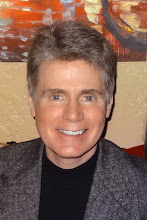Sarah_1&2_I
I was oddly surprised to find that Simmons waited until pages 35 and 36 to mention the influential power of stories as they relate to religion and Aesop's fables. From the start of the book I couldn't help thinking, "Just say it! Just say stories hold religion together!" All the elements were there, but she just wouldn't say it plainly for me.
She mentioned how you need to use stories to get people to believe you, to trust you. Then there was this whole talk of faith on page 3. Stories create faith, and the ultimate goal is for your audience to believe your story to the point that the story becomes theirs as well. Is this not the roots of organized religion? Each religion has its own stories that unite its members and keep the religion strong. We believe in the stories our religion's tell so much that we're willing to shun the stories of others or even go to war over opposing stories. This is true power and influence.
Because I was in this religious mindset, I also couldn't help but take the titles for the six story types literally. So here's how I saw the titles when I first read them:
1. "Who I Am" tells us who we are as people and where we came from.
2. "Why I Am Here" tells us why we were brought into existence.
3. "The Vision" tells us what the higher powers have planned for us.
4. "Teaching Stories" tell us what we're supposed to do.
5. "Values-in-Action" related to teaching and show us how to be good people.
6. "I Know What You Are Thinking"..... well, I couldn't really think of something for this.
Maybe this relates to the all-knowing God phenomenon. Or maybe it relates to naughty
thoughts equaling no presents on Christmas. I don't know.
Did anyone else have any similar thoughts, or am I just crazy?
Labels: Sarah J


2 Comments:
When I was writing a paper on obscenity laws, I came across a discussion of attribution theory. This theory says that since people like to see themselves as belonging to a larger group, they'll often believe that their own beliefs or standards are the norm within that larger group.
I never really even thought of religion when I was reading through the book. I certainly did not notice its absence like you did.
So, no, you're not crazy for having such thoughts and you're also not crazy for expecting the author to arrive at that conclusion. We all do that.
I reckon Simmons waited a bit to bring up religion because it's a touchy subject. People get offended when you try to mess with their faith-based, and therefore irrefutable, argument.
Since this is a book about persuading people with story, of course Simmons wants to persuade us as well -- so she left religion until after she had laid out her rhetorical framework.
There's this great line at the beginning of "The Departed." In reference to Irish-Americans, Jack Nicholson's characters says: "In the beginning we had the Church, which is to say, we had each other."
Religion as a blanket for community. A common story for the neighborhood. I buy that one.
Post a Comment
<< Home